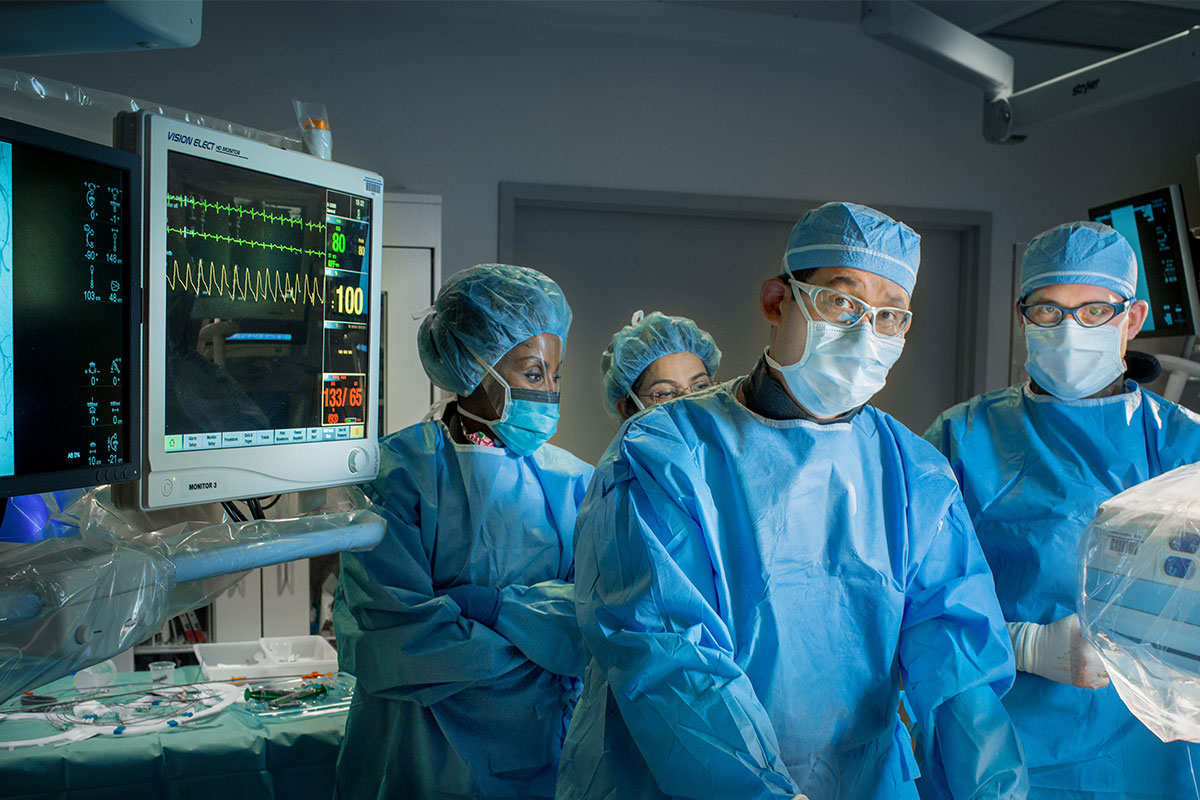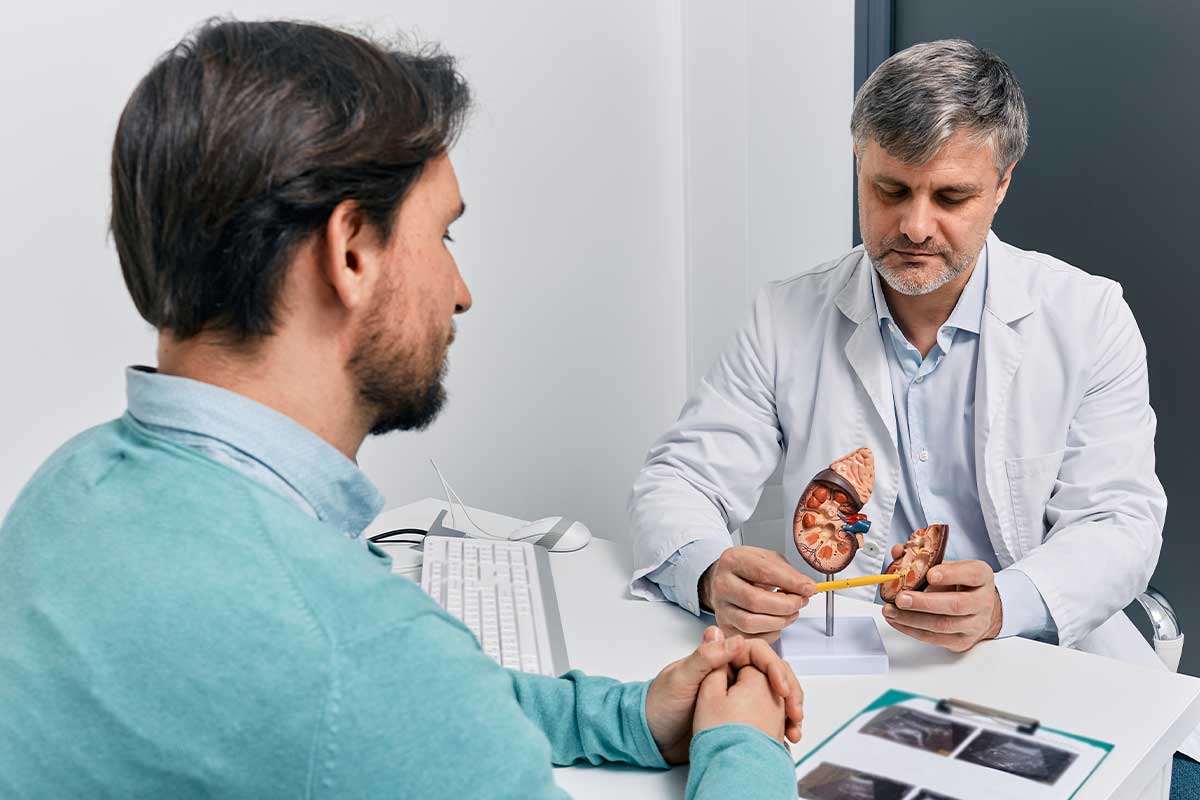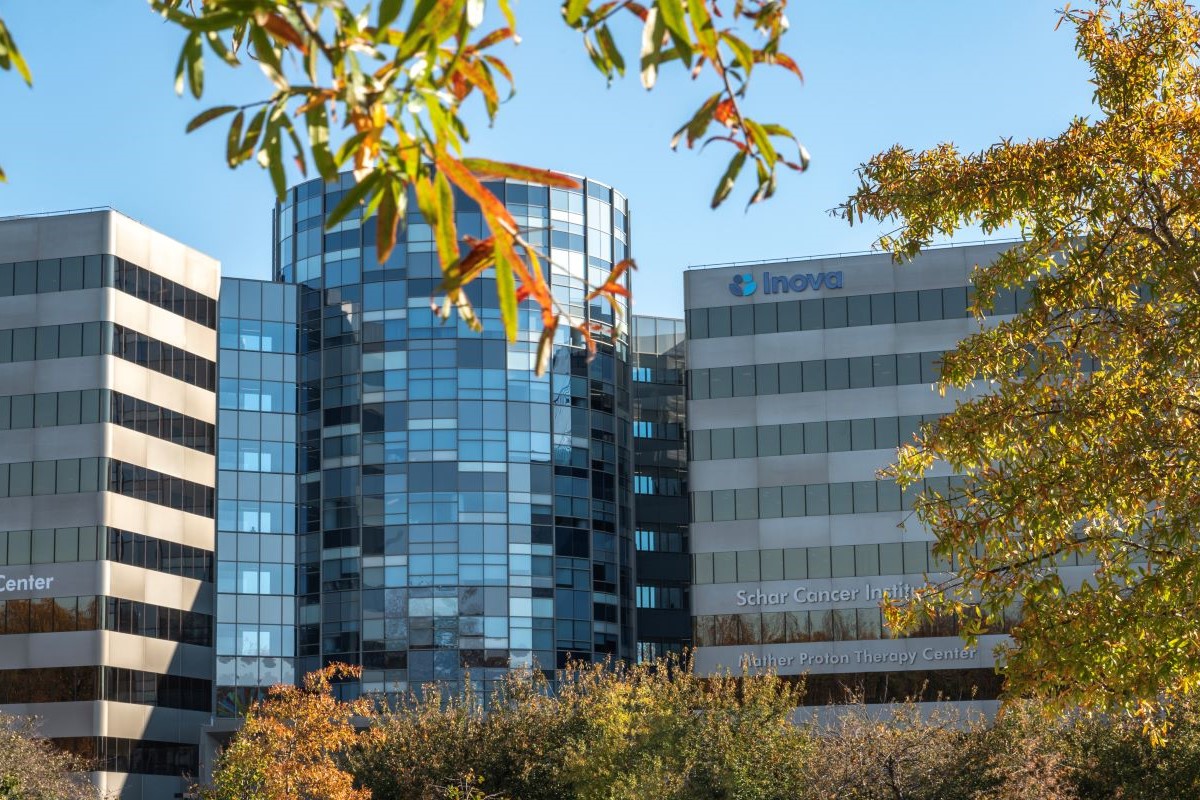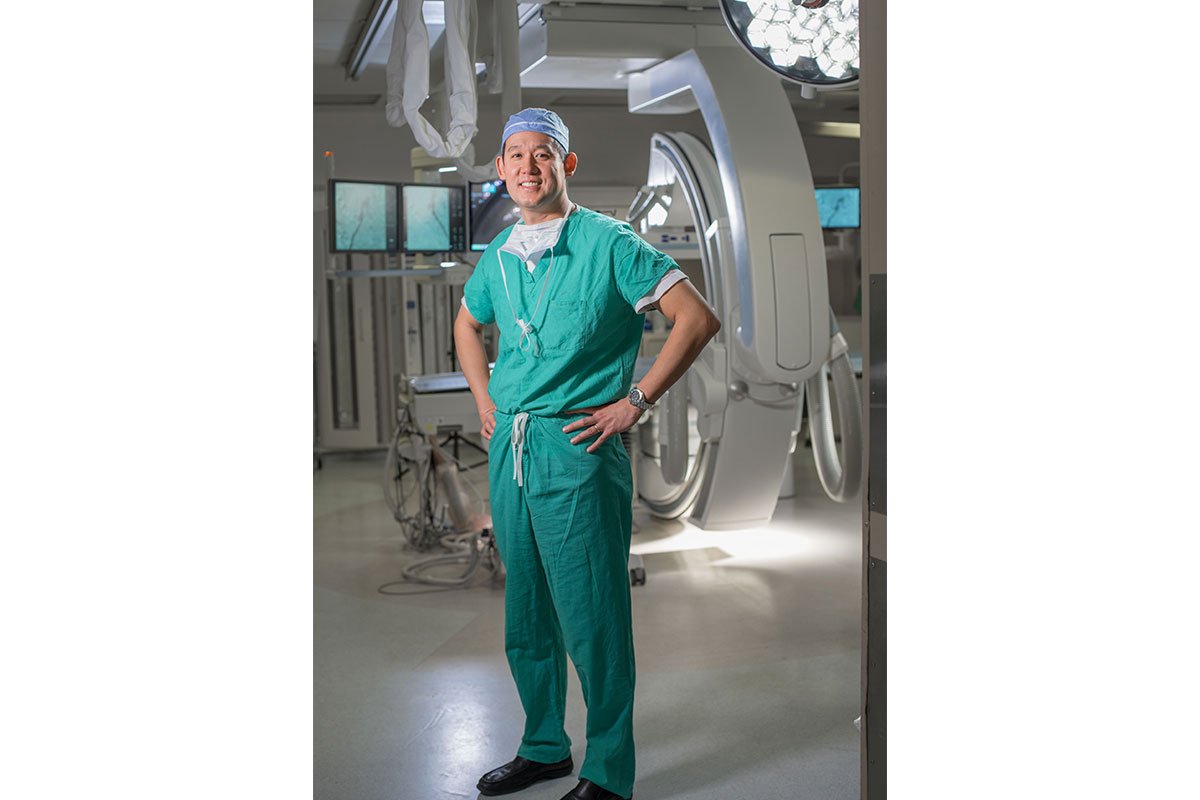
Dr. Edward Y. Woo
Vascular Surgery, MedStar Health
How did you decide what specialty to pursue?
I was drawn to vascular surgery because of the broad range of procedures offered, as well as the multiple different ailments that could be treated. We can help patients walk better, prevent stroke and save lives from life-threatening problems, all in one specialty. In addition, vascular surgery has really been on the forefront of pushing technology towards minimally invasive procedures that allow patients to get back to their lives much quicker.
How is your life like a hospital drama show?
It really is super busy and often we are very constrained for time. I will also say that our work always encroaches upon our personal lives. I can’t tell you how many times over the years my family would ask me why I’m so distracted and I would simply answer that I’m thinking about a patient.
What is something people assume about doctors that’s not true?
That we are out having lunch while they are waiting in the waiting room. Just kidding. I think that many people assume that we are not very emotional. It’s actually quite the opposite. We do try to present a stoic image in order to help patients and families through their difficult times, but we feel everything and we internalize it all.
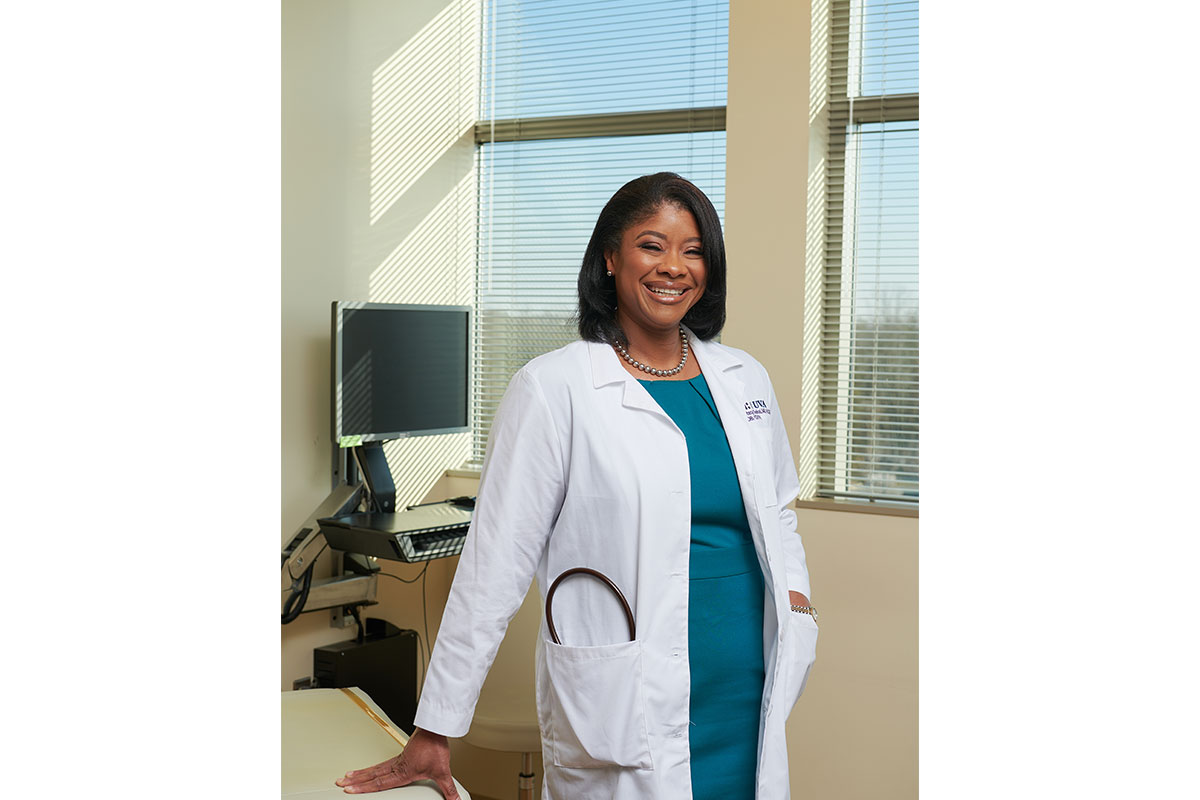
Dr. Stacy Dehal
OB-GYN, Novant Health UVA Health System
How did you decide which type of doctor to become?
My mother was diagnosed with breast cancer in her early 30s and died at the age of 36. I was 12 years old, and I had a younger sister who was 6 years old. This life-changing event shaped my life and career choice. I knew I wanted to be in women’s health, and, after doing my OB-GYN rotation as a medical student, I was hooked!
What is your all-time favorite patient story?
There are many great stories, but my favorite is when a patient of mine invited me to her wedding. We had been through a lot together, and I delivered her and her then-fiance’s child. After the ceremony, as husband and wife walked down the aisle toward the door, she glanced over, saw me and yelled, “Dr. Dehal!” I don’t think she really believed I was going to attend, but I was so excited for my patient and wanted to help her celebrate this next chapter of life.
What’s something that never gets old about your job?
Being part of a family’s big event and celebrating with them after giving birth. I love running into patients around town who say, “This is one of yours,” about their child or young adult. It tickles me every time!
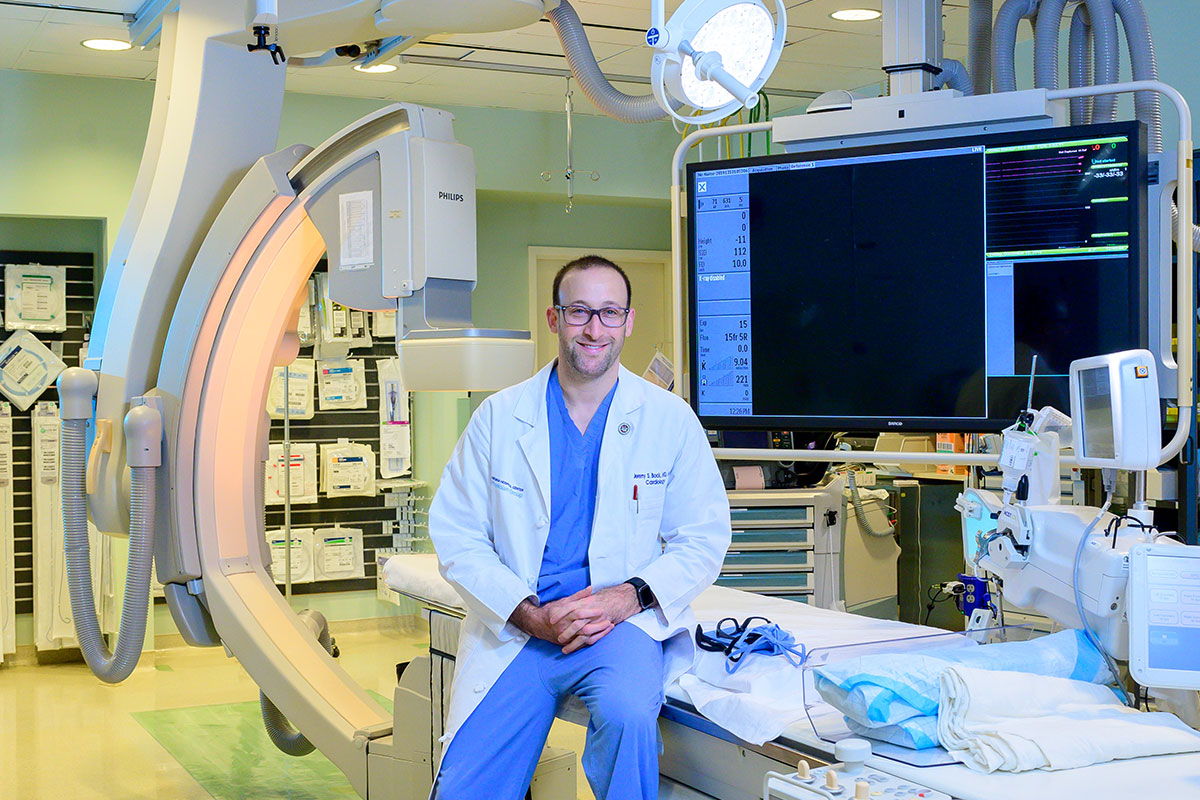
Dr. Jeremy Bock
Cardiology, Virginia Hospital Center
How did you decide what specialty to pursue?
I was interested in heart function and cardiovascular disease fairly early in my medical education. Although, in some ways, cardiovascular disease seems complex, the heart and vascular system actually operate according to a few very basic physical principles. For example, heart function and the distribution of blood through the body works like the most basic electrical circuit that is taught in high school physics. I find cardiovascular physiology beautiful and brilliant in its simplicity.
What’s your all-time favorite patient story?
A man was visiting his family in Northern Virginia and, while at an event, he collapsed. Bystanders found that the man had no pulse and started CPR while others called 911. The ambulance crew verified that he was in cardiac arrest, continued CPR and performed multiple electrical shocks to his heart while transporting him to Virginia Hospital Center. Because many of these cardiac arrests are caused by heart attacks, the ER called me and my team to perform an emergency procedure. However, the patient continued to require CPR and electrical shocks for over 60 minutes.
We all agreed that he wasn’t even stable enough to transport him in the elevator up to the cardiac catheterization lab. I remember standing outside of our Trauma I room in the ER, explaining to the man’s family that I did not think he was going to make it, that very few people survive after an hour of CPR. Through persistence on the part of the ER staff, the patient regained his pulse briefly enough to transport him to our procedure lab. We immediately performed a procedure to insert a temporary pump to support his heart function. We then restored blood flow in his multiple blocked heart arteries with balloon angioplasty and stenting. After the procedure, the patient’s heart function stabilized, but we were very concerned for brain damage since the circulation to his major organs had been compromised for so long. Miraculously, after a few days, the man slowly came around and regained all of his neurologic function. He spent a few weeks in the hospital. Last month, he walked into my office for follow-up after his hospitalization. He was alive and felt completely normal. He was so grateful for his care.
I think this story also illustrates that, very often, taking care of patients takes a village of people. In this case, people from the community who performed CPR, the paramedics, the ER staff, our cath lab team, the critical care team and numerous other physicians, nurses and hospital staff all had a hand in saving this man’s life.
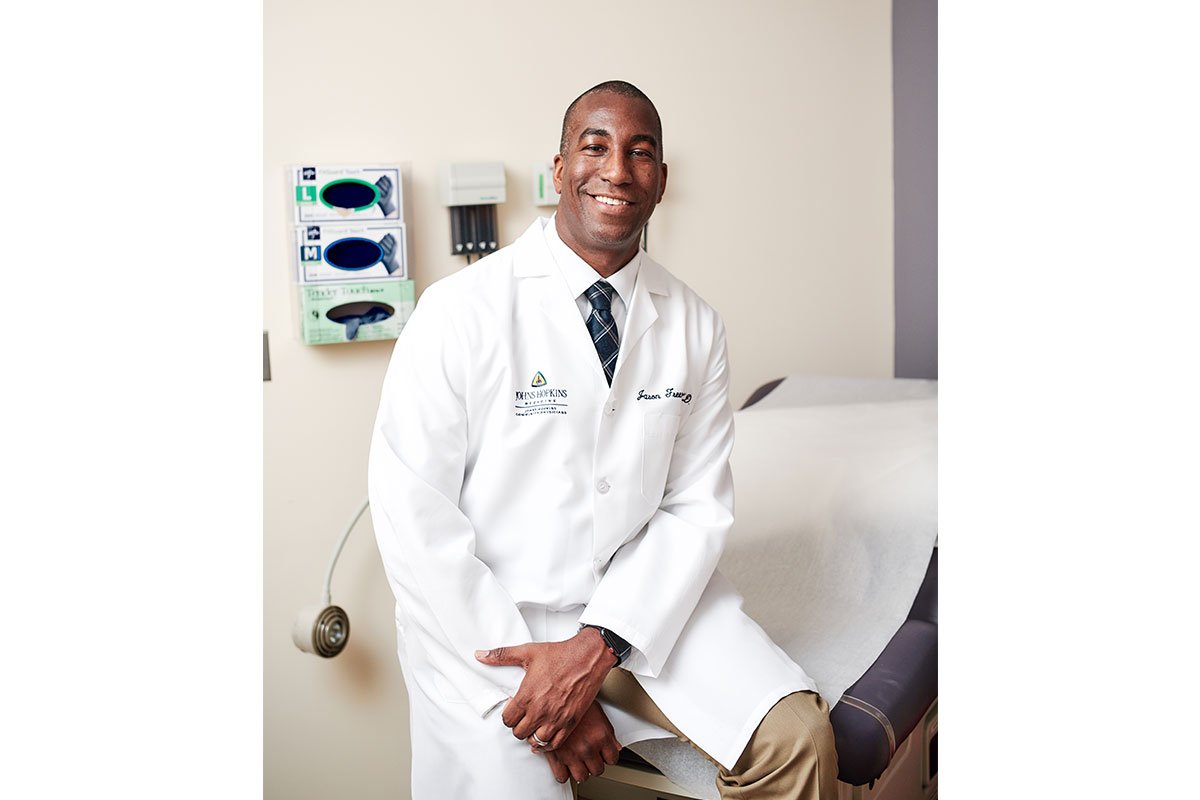
Dr. Jason Freeman
Neurology, Sibley Memorial Hospital
How did you decide which type of doctor to become?
For many years I was focused on neurosurgery. I was a neuroscience major at Brandeis University and then worked in the neurology department at Massachusetts General Hospital. It was there I fell in love with clinical neurology. It was a field where the combination of history, physical exam, and, now, technology allows for, at times, precise diagnosis, but also a field where there remains great mystery and variation in our ability to intervene on many neurological conditions.
When you first became a doctor, what was something that surprised you about the field?
Medicine is slow to change. Despite the latest research study, new drug or available treatment options, it takes years for most changes to occur on a broad scale. The health care system would benefit from thinking at times more like technology companies who value and understand that their technologies will change whether led by them or their competitors.
What drives you crazy about hospital drama shows?
I actually don’t mind most. Of course, medicine never moves as fast as it does on TV, and cases are often far more complex and difficult to diagnose than on television.
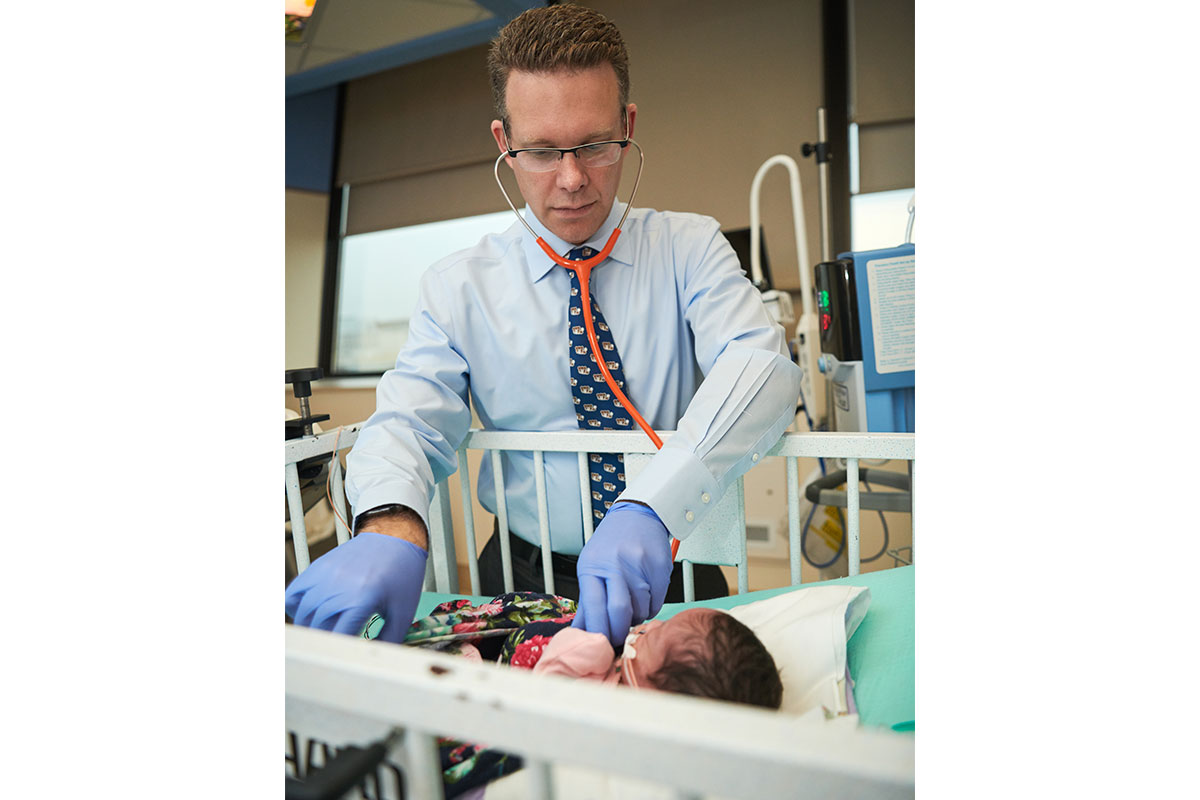
Dr. Brian Stone
Neonatology, Children’s National Hospital
What is your all-time favorite patient story?
I have had so many meaningful patients over the course of my career. One special family had a premature infant who spent many months in the NICU. Like so many of our patients, this infant was very small. The baby had feeding difficulties, and we worked extensively for months to help the baby eat and thrive. The baby ultimately grew and returned home. A few months after the baby was discharged, the family sent coffee mugs to the NICU with a slogan that has become my daily mantra: “Today’s goal: keeping tiny humans alive.” Every year, the family sends me pictures and updates about a growing, thriving, happy child.
What do you think will be different about the medical field in the next 10 years?
Research is leading to significant advances in newborn medicine. Just a few decades ago, mortality rates were high for the youngest and smallest newborns. Today, we achieve great outcomes for these very small, vulnerable infants. I think those trends will continue, enabling even more preemies to survive despite being born well before their due dates. Within 10 to 15 years, technologies that are in development now—like artificial placentas—are poised to help to improve outcomes.
If you weren’t a doctor, what would you be?
I would train to be a professional cyclist.
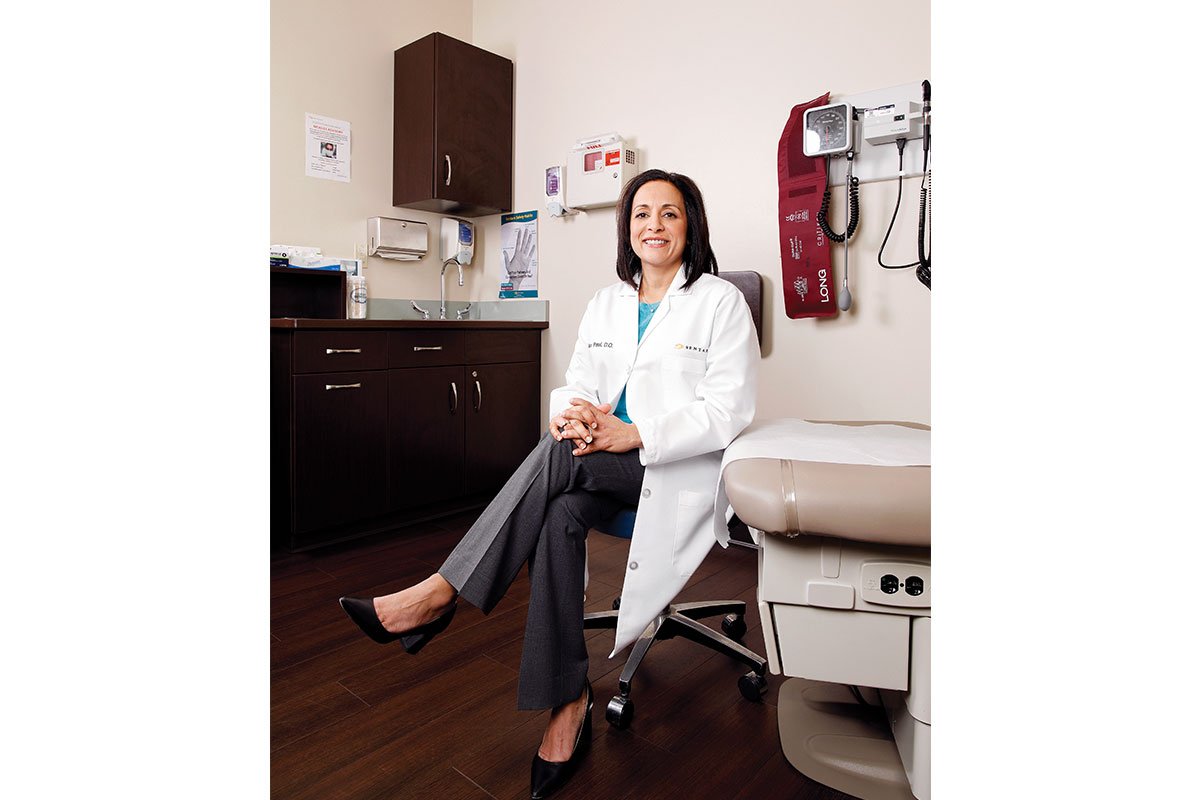
Dr. Milan Patel
Family Medicine, Sentara Family & Internal Medicine Physicians
What do you think will be different about the medical field in the next 10 years?
I think in 10 years there is going to be more use of telehealth and telemedicine. It is the modern form of health care delivery and will likely be a more prominent way of providing health care in the future. Although it challenges traditional health care, it could provide medical services to populations with lots of barriers to health care, like rural or remote communities.
When you first became a doctor, what was something that surprised you about the field?
I was surprised at how much mental health care I would be providing. Anxiety and depression are so common in our society and getting access to psychiatric services is a huge problem. Much of this falls on primary care providers.
What’s something that never gets old about your job?
Seeing babies! In a sea of adults with so many health problems, having a healthy, smiling baby on my schedule is always a highlight.
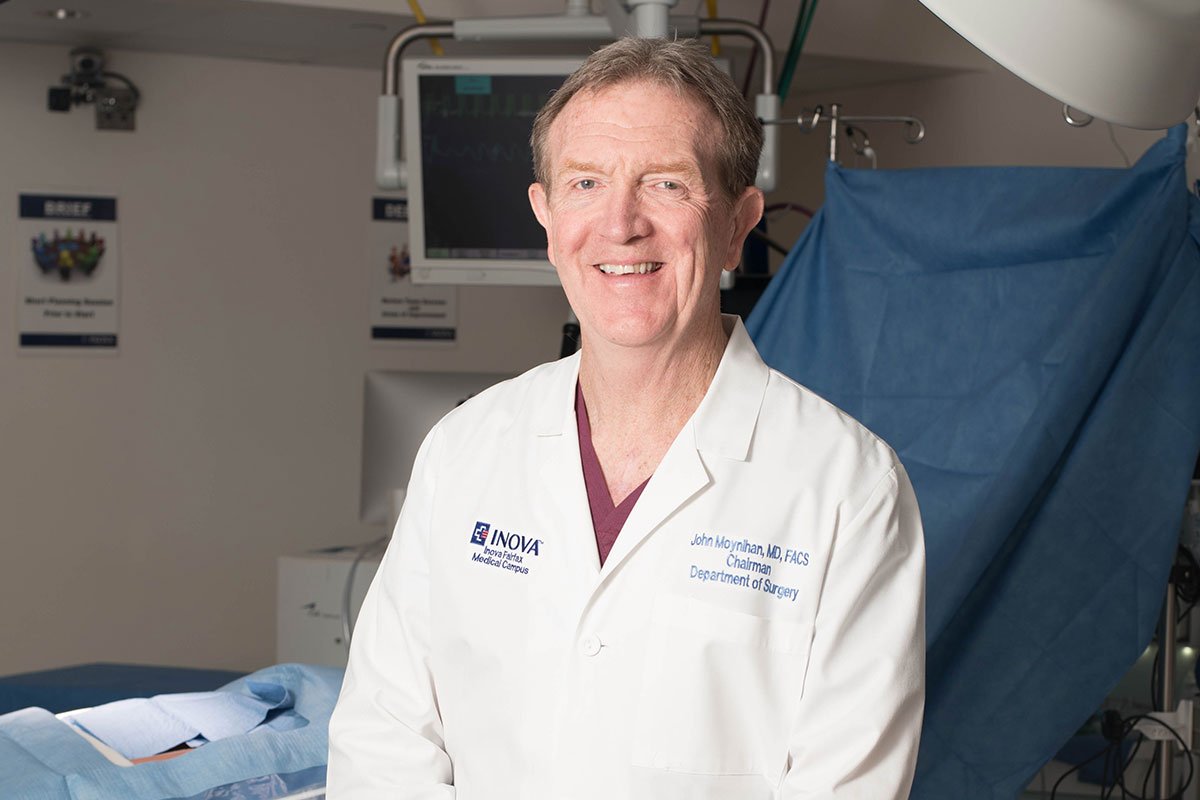
Dr. John J. Moynihan
Surgery, Inova Medical Group
What’s your all-time favorite patient story?
Early on in my career, I was involved in the care of a patient who was in a severe motor vehicle crash and sustained life-altering injuries that would result in a lifelong path to recovery. On the day of the injury, after finishing up in the operating room, I had a discussion with her family to let them know what lay ahead for all of them: the challenges, the frustrations, the inevitable setbacks and the fact that our team would be there every step of the way. The patient eventually recovered well enough to be discharged from the hospital to complete her recovery and rehabilitation in the appropriate setting. Nearly 20 years or so later, one of her family members, who had been at that original discussion right after the surgery, came to share with me how much they appreciated those few moments 20 years before when I sat with them. It is my all-time favorite patient story because it reminds me that it is often the little things, like a few minutes of our time, that mean so much to the patients we care for.
What do you think will be different about the medical field in the next 10 years?
The changes in health care have been fast-paced and driven by advancements in technology over the past several years. As we go forward, I believe we will see a drive to further integrate devices and innovative technologies to empower people to manage their own health and well-being. Additionally, through artificial intelligence and virtual reality applications, improvements in safety and quality of care will be more attainable.
What’s something that never gets old about your job?
What never gets old is the personal reward I get from helping someone and their family when their health is at risk. As a student, I was taught that one day we are all patients and we can never lose sight of that fact during our careers.
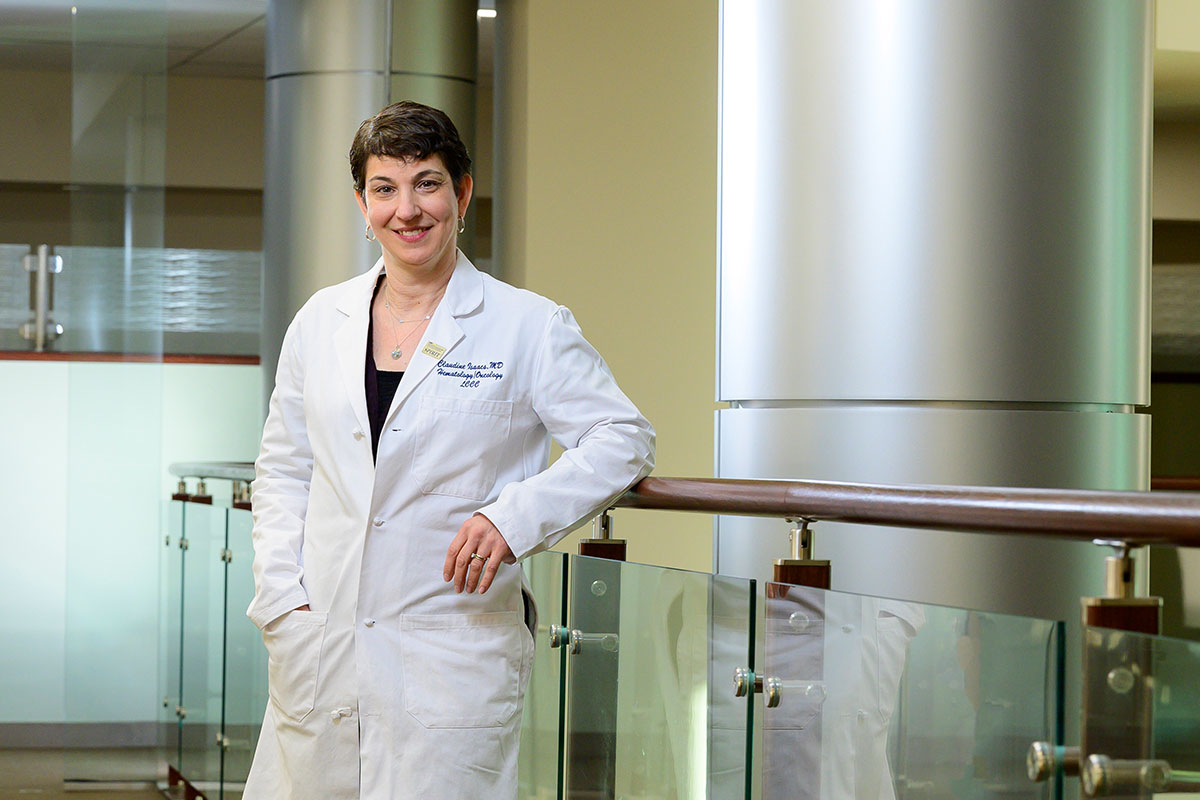
Dr. Claudine Isaacs
Medical Oncology, MedStar Health
How did you decide which type of doctor to become?
I know no one ever wants to meet an oncologist or have a cancer diagnosis, but being an oncologist allows me to help people during extremely difficult times—and I was really drawn to that. One of the things I love most about what I do is the long-term relationships and bonds that I form with my patients.
What do you think will be different about the medical field in the next 10 years?
Advances allow us to continue to have improved outcomes and chances for a cure from cancer. We continue to make tremendous advances through clinical and basic science research, which better equip us to offer more precise, individualized treatment for our patients. The other area where I think we will see significant advancements is in preventing cancer from ever developing by identifying the people at the highest risk and figuring out ways to prevent them from developing the disease. We are also seeing advances in detection methods, so we can diagnose and treat patients in the earliest stage when they are most likely to be curable.
How is your life like a hospital drama show?
I think the greatest similarity is how we work as a team. In a hospital, everyone is important. Everyone plays a vital role in terms of helping to provide the best care for patients, their families, caregivers and friends. They also show the importance of training, the importance of medical students, interns, residents and the whole team approach.
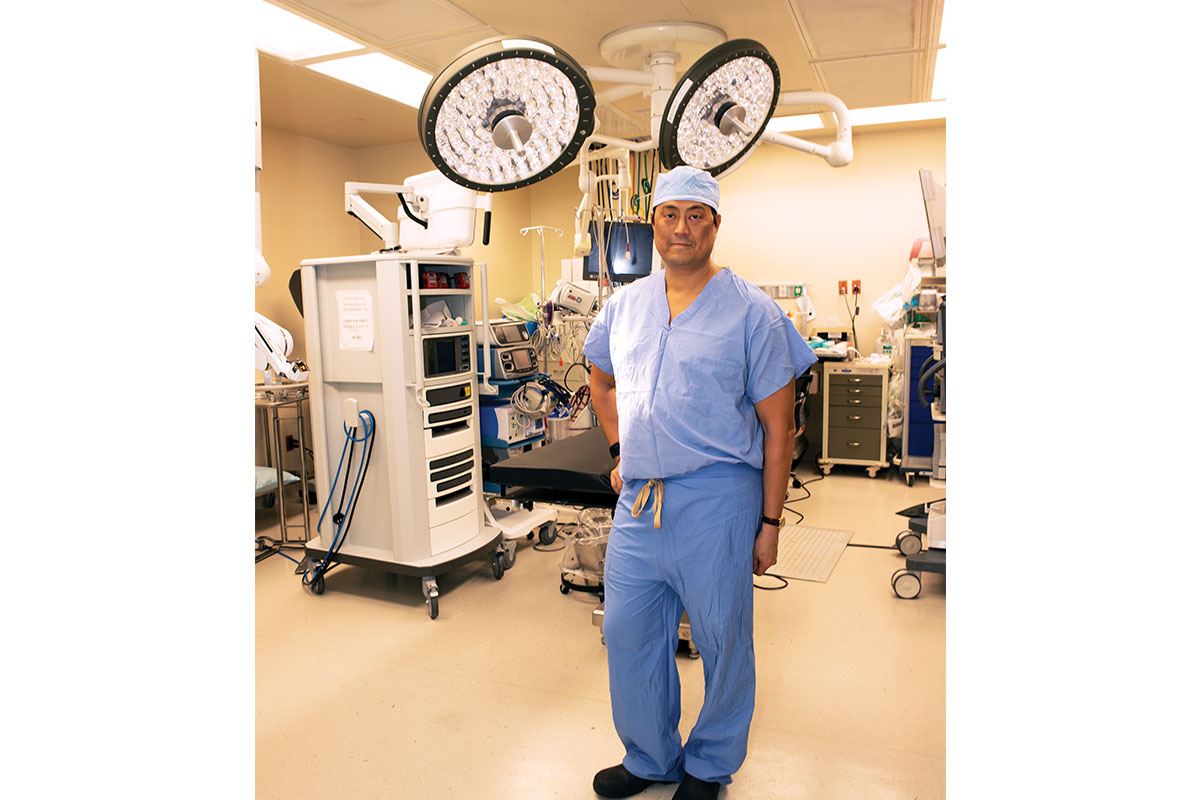
Dr. Vincent J. Obias
Colon and Rectal Surgery, The George Washington University Hospital
What is your all-time favorite patient story?
I took care of a young patient who had a very complicated rectal cancer due to its location. Traditionally, this patient would have received a very large incision and a permanent colostomy as part of the cancer treatment. Being the first surgeon in DC to use robotics for colorectal diseases, I avoided giving this patient a permanent colostomy and did it through five very small incisions. I was able to give this young person a better quality of life, and importantly, the patient is still cancer-free almost a decade later.
What do you think will be different about the medical field in the next 10 years?
One of the most disruptive technologies in surgery is robotics. Groundbreaking robotic surgery companies like Intuitive are starting to have healthy competition from innovators like Medtronics and even Google. In 10 years we will see the maturity of many of these systems, as well as the beginning of truly autonomous robots that may be able to do surgery with more precision than humans.
If you weren’t a doctor, what would you be?
Undoubtedly, I’d be involved in technology in some way, whether as an engineer or business development. But, honestly, I would not be as happy as I am now working with patients every day!
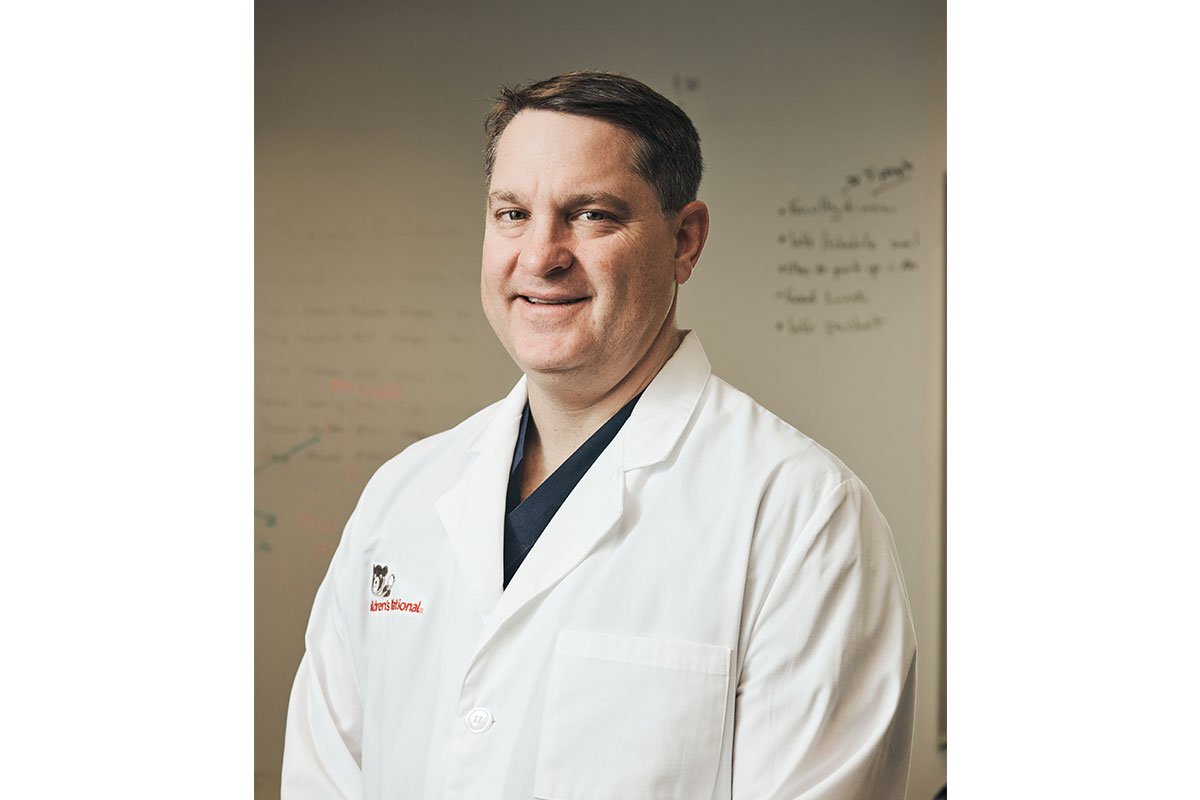
Dr. Matthew Oetgen
Orthopaedic Surgery, Children’s National Hospital
What is your all-time favorite patient story?
I have a young patient who has a complex genetic condition I have cared for since she was less than 1-year-old. Due to a leg issue associated with the condition she had to have a big surgery on her leg as a toddler. She was in an external fixator (sort of like an erector set on the leg) for many months. This little girl was so positive through it all, she was an inspiration. She actually, still to this day, puts that external fixator on top of her Christmas tree as the tree topper because she is so happy with her outcome.
What’s something that never gets old about your job?
I never get tired of talking to parents right after surgery. Telling them their child is safe and the surgery was a success is a great feeling. You can visibly see a combination of relief and happiness wash over them. It is always great.
What drives you crazy about hospital drama shows?
Medicine is such a team sport. I have great colleagues I rely on and who rely on me to care for children. I hate seeing shows that portray individual doctors as one-person medical deities.
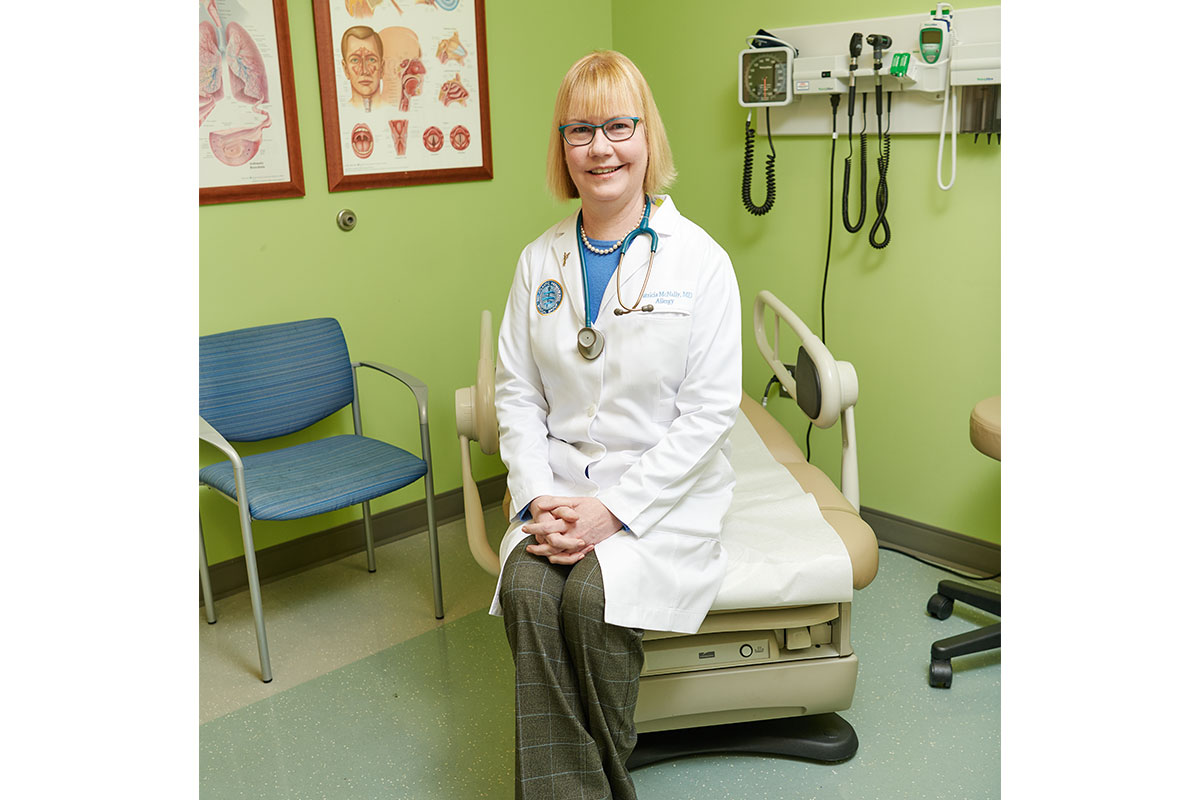
Dr. Patricia McNally
Allergy and Immunology, Mid-Atlantic Permanente Medical Group
What inspired you to become a doctor?
The summer after I graduated from high school I got a job as the night unit secretary in an emergency department. The folks who worked there took great care of their patients and the patients were very interesting. I thought being a doctor would be an exciting job and it is. I kept that job part time for eight years until I graduated from medical school.
What is your all-time favorite patient story?
When I was practicing internal medicine, I had a very nice patient who convinced her husband to come for a physical when he turned 50. He had not seen a physician as an adult and was not thrilled about the visit. I knocked the top piece off the instrument you use to look in the ear. I don’t think I had done that previously or haven’t since. I knelt down to pick it up and was at eye level with the smallest melanoma I have ever seen on the back of his calf. He saw dermatology in a few minutes and had surgery later that week and did very well as the cancer was caught early. I kept in touch with them for years. He gave me credit for diagnosing his problem early. I gave him credit for going along with his wife’s request to get a physical. We were all appreciative the stars aligned for him that day.
What drives you crazy about hospital drama shows?
Sometimes they dwell on the negative. Lots of medicine is very positive.
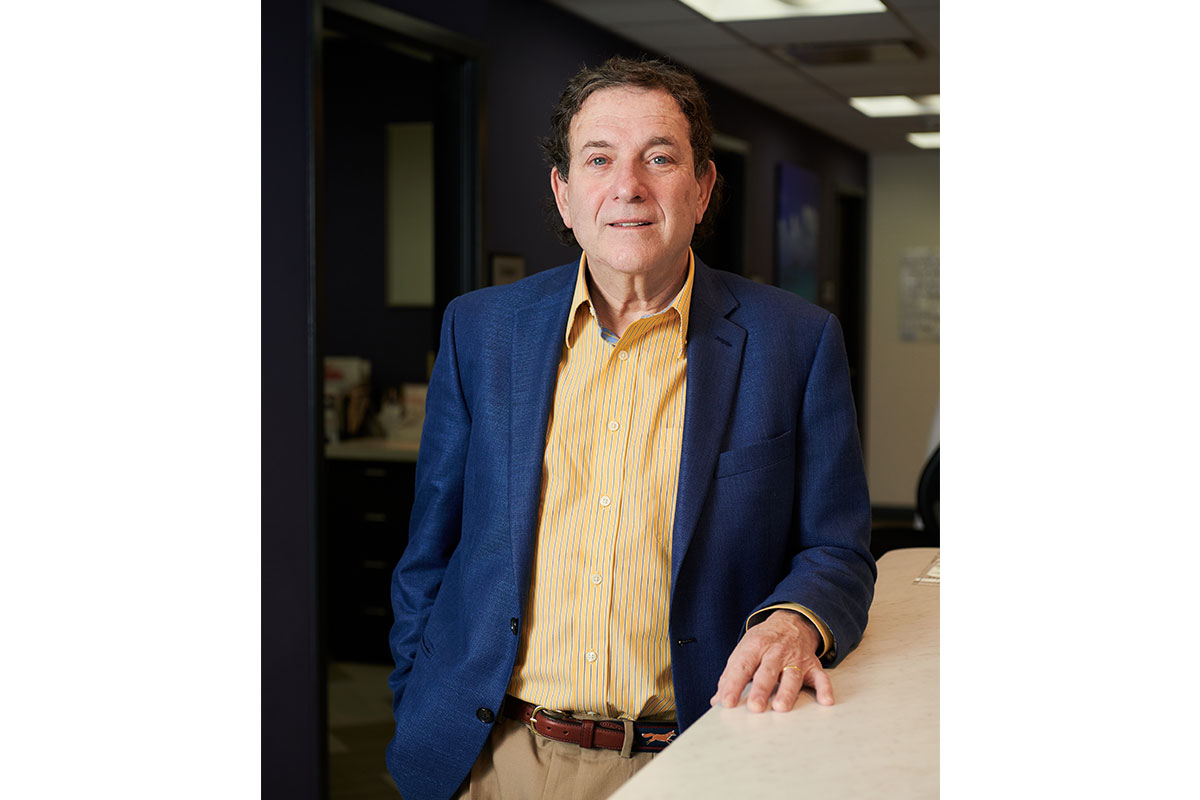
Dr. Kenneth Mirkin
Gastroenterology, Gastroenterology Associates of Northern Virginia
What inspired you to become a doctor?
My choice of medicine came late in my education, as I was on a career path toward research in physiological psychology, having given up on my original goal of concert violinist, for which I really did not have the talent. It seemed to me that medicine offered a blend of science and art that works well for me.
What is your all-time favorite patient story?
Practicing in the DC area, one has many very sophisticated and worldly individuals as patients. One such patient set sail on her own sailboat around the world. During this trip she became ill. When she returned and came to my office, I asked her when these symptoms first presented. She replied, “I think in Australia.” They continued their voyage and waited until they returned home. I asked her why she did not see a doctor in Australia and she said she really did not trust anyone else. It really made me feel appreciated.
What advice would you give to students just entering medical school?
In this era of ever-increasing external control and the emergence of electronic record keeping, it is often easy to forget that one of the most important components of good medical practice is the ability to listen. Often, the patient will tell you what is wrong if you just listen. One should spend less time looking at the ever-present computer in the room, make eye contact with the patient and listen.
This post originally appeared in our February 2020 print issue. For more insider information from NoVA residents, subscribe to our weekly newsletters.

